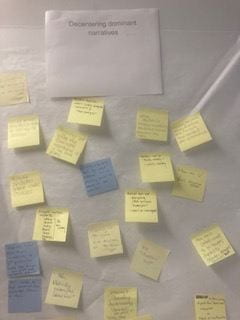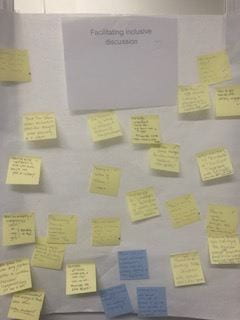Submitted by: Thomas John Murphy
Attendees: Tom, Michel, Calvin, Jessica, Amanda, Momi, Suzane
We started the meeting by discussing the Curriculum Audit template that Momi shared. It was seen as useful for gaining insight into our teaching practices. We talked about our habits and assumptions should be examined as closely as our curriculum.
Next, we went into breakout rooms to work on a unit or activity that we wanted to use in the classroom. The goal was to produce materials that would impact our teaching sooner rather than later. After we returned to the main rooms the groups reported on their work.
Jessica and Amamnda
They were worked on adjusting their Isalm curriculum to COVID times. They could not take students to a Mosque or have a calligrapher work with students. They talked about various online resources and how they wanted to expand their discussion of religions around the world.
Suzane and Momi
Discussed their focus in the course and how to continue to use the DEI framework and the Curriculum Audit to continue to revise their next units.
Michel, Calvin, Tom
We talked about the DIA elective and how the civics focus lent itself to DEI work. It is Calvin’s first time teaching the course and we started by discussing the nuts and bolts of the term (SBG standards, types and number of assessments, the final). After this, we moved on to how each of the lenses we planned to use had a DEI component being with the contested nature of the Constitution.
After debriefing, we decided that next week would continue in our groups to again work on developing DEI material for our classrooms.
![]()

